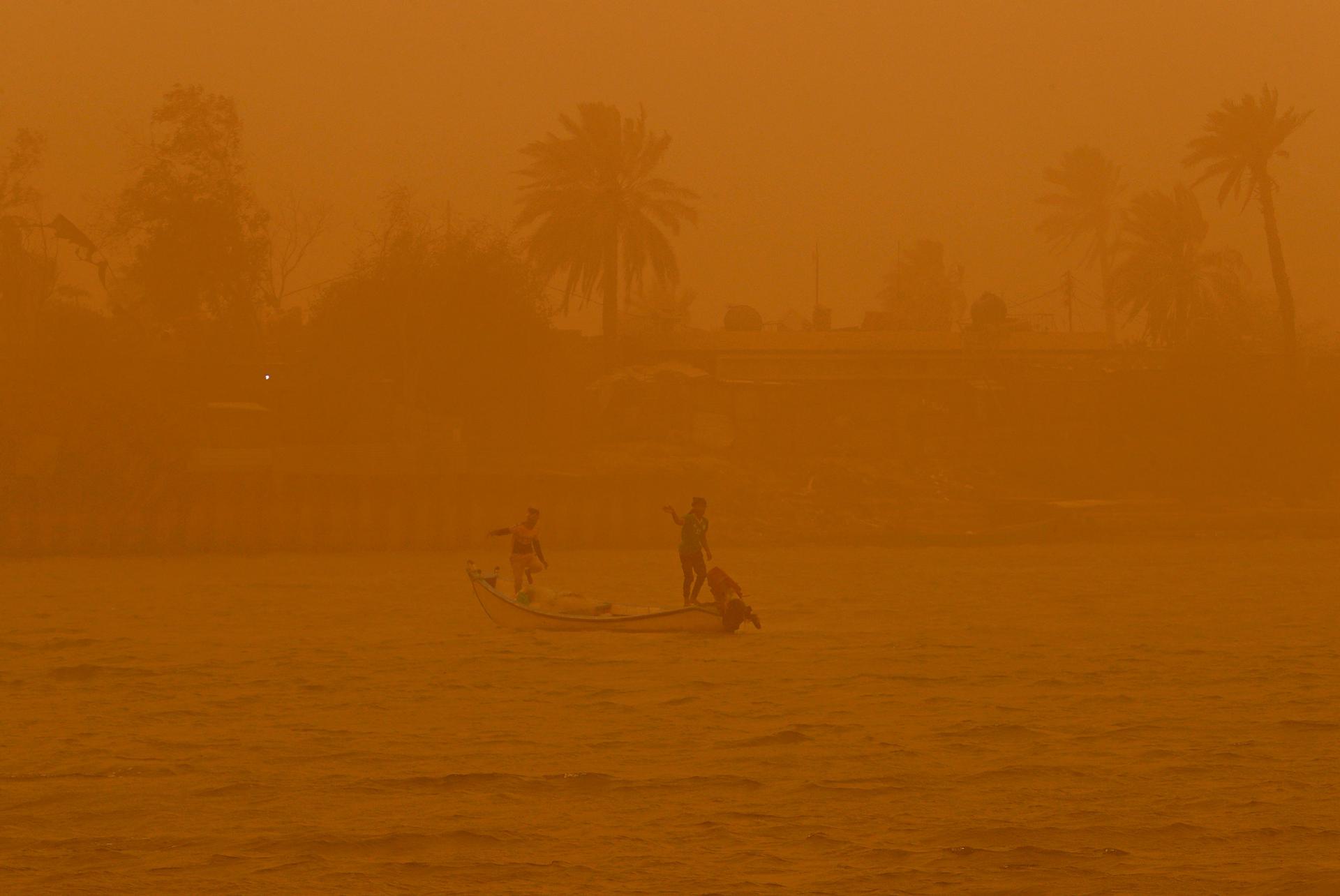‘It’s a mass ecological crisis’: Extreme weather in Iraq hits those already struggling the hardest
Rosa emerged from the tent she’s lived in for nearly eight years with specks of dust in her red henna-dyed hair. The flimsy tarp has been no match for the tireless succession of dust storms that have swept across Iraq and swathes of the Middle East this year.
“Even people’s faces are covered in dust. … It gets into everything.”
“Even people’s faces are covered in dust,” she told The World, pointing to the fine grayish powder coating the small informal settlement occupied by Yazidi people in the northern Iraqi city of Erbil. “It gets into everything.”
Related: Iraq’s Yazidis stuck in ‘tug-of-war’ between regional armed groups
About a dozen dust storms have blown across Iraq this year. While these types of storms are a yearly occurrence in Iraq and neighboring countries, experts warn of an increased frequency and intensity attributed to climate change, drought and desertification.
Those hit hardest by extreme weather patterns are Iraq’s most vulnerable, according to analysts.
Related: ‘I had no life left here’: Iraqi Kurds are at the center of the migration crisis in Europe
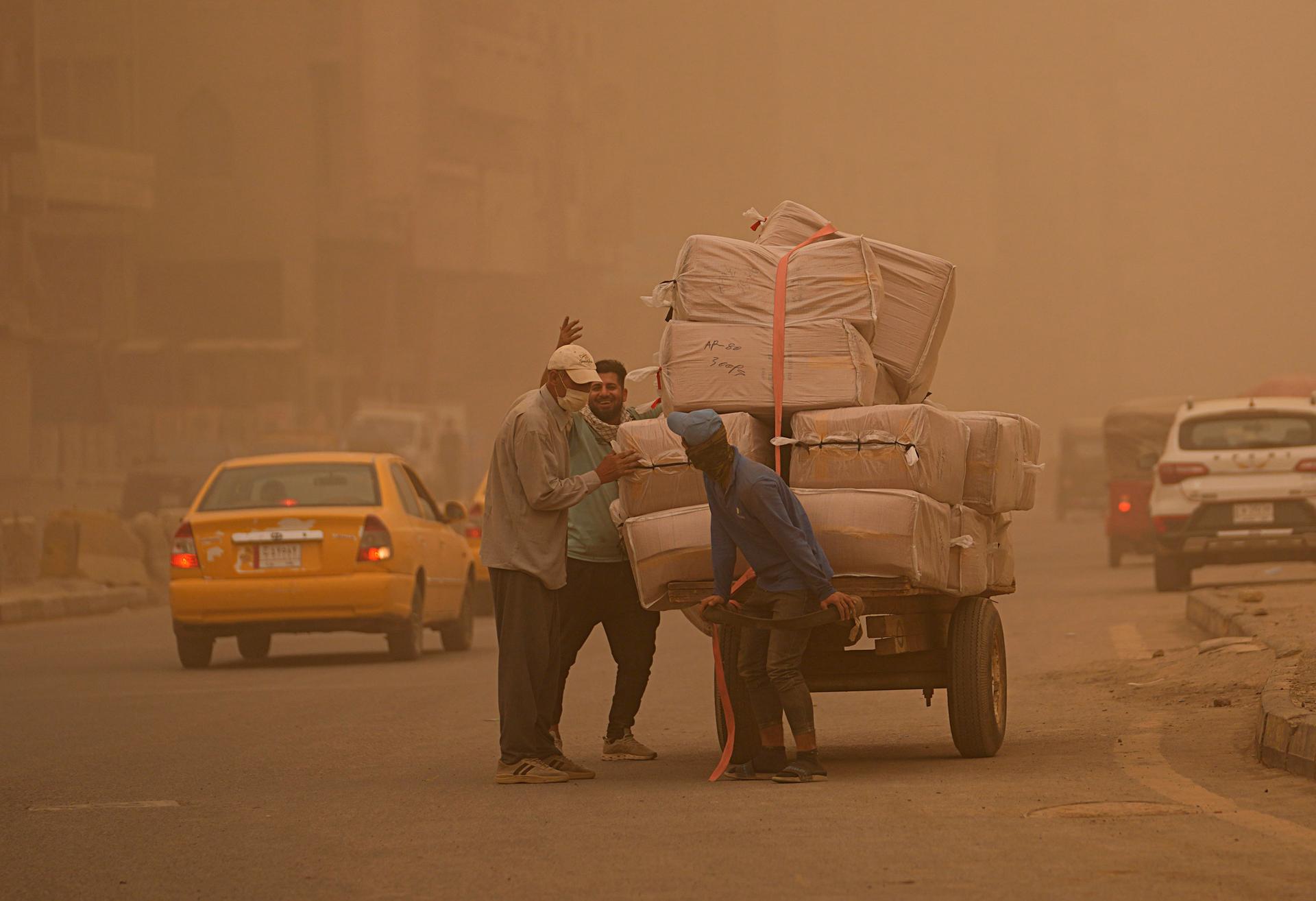
Rosa said her neighbor was hospitalized for severe breathing difficulties. She’s among thousands hospitalized due to the storms that have swept through the central and southern parts of the country in recent months, according to Iraq’s Ministry of Health, who also confirmed that at least one person has died.
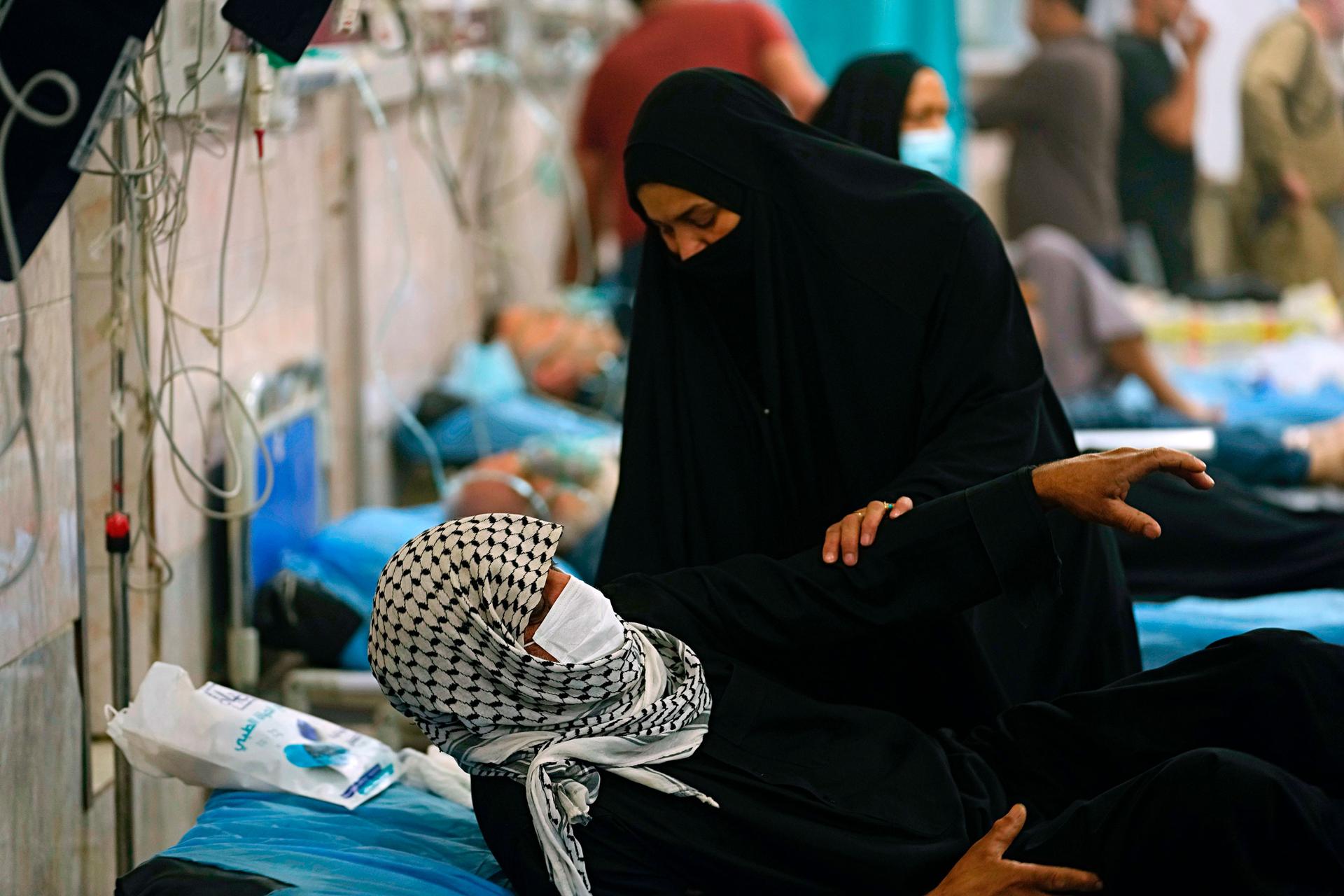
As the dust settles, the Yazidi women living in the encampment get to work — expertly using water and squeegees to guide the grime from their fragile, but cherished, homes.
The clear water quickly turns to mud as it zig-zags across the unpaved settlement near one of the many glistening new skyscraper projects shooting up across the capital of the semi-autonomous Kurdistan Region.
The women have spent countless hours cleaning in recent months, but insist this is not the worst they’ve experienced as a result of Iraq’s propensity for extreme weather.
When torrential rains caused flash flooding in December, Rosa’s family lost everything — furniture, clothes, identification documents.
“If the police didn’t come to help, we might have drowned,” she said. The incident killed at least 11 people in Erbil.
Residents have since dug a shallow moat around the encampment in the hopes that it will prevent future flooding.
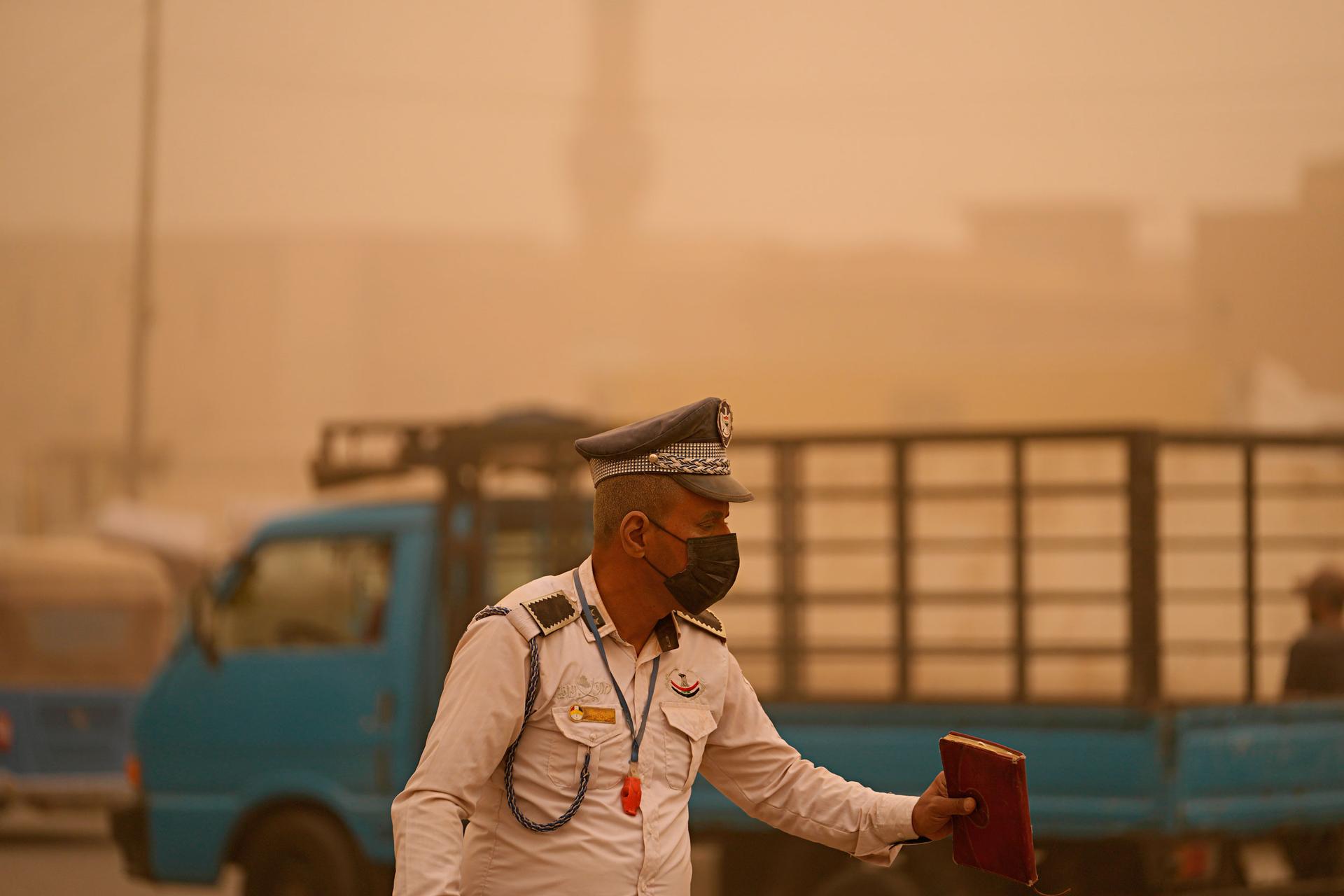
Experts say that those living in Iraq should prepare for more extreme weather and its stormy consequences on the war-scarred society.
“We’re seeing Iraq really dealing with a massive ecological crisis.”
“We’re seeing Iraq really dealing with a massive ecological crisis,” said Zeinab Shuker, a sociologist at Sam Houston State University in Texas.
“The poor, the unhoused IDPs [internally displaced people], the farmers, those who live in rural areas, those with limited access to resources, those who are most impacted by the storms,” she said, listing those immediately impacted by the extreme weather.
As the fog settled over cities across Iraq last week, many were still out on the streets, forced to work out of financial necessity.
Related: Heat wave sparks blackouts, questions on India’s coal usage
“At the end of the day, it’s work,” said Ayman, a food delivery app driver who declined to share his last name. He said that he hits the streets, protected with only a face mask and helmet on his motorcycle, no matter the weather.
Many in Iraq struggle to find adequate work — especially Syrians like Ayman. About one-third of Iraq’s population now lives in poverty, according to the United Nations.
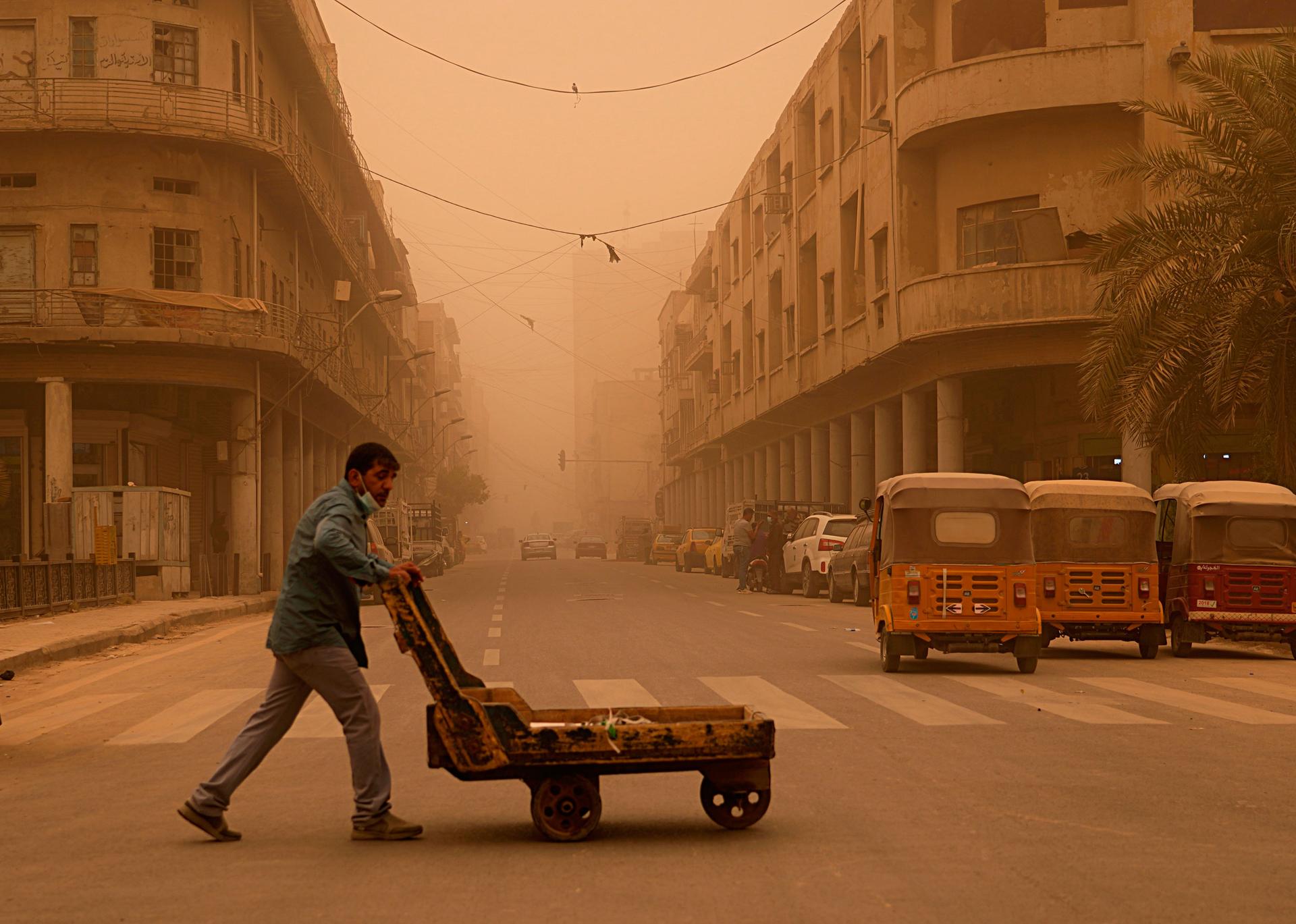
The spiraling cycle of increasing temperatures, droughts, water shortages, combined with government mismanagement have all contributed to worsening extreme weather events that will have disastrous long-term social, political and economic implications, Shuker said.
Related: Drought in Iraq and Syria could totally collapse food system for millions, aid groups warn
Shivan Fazil, a researcher with the Stockholm International Peace Research Institute, also said that the impacts of climate change will “exacerbate existing inequalities and grievances in Iraq.”
“[Iraqis] interact with the shortfalls in basic services and lack of economic opportunities. Hence, exacerbating several key drivers of insecurity in an already fragile setting.”
“They interact with the shortfalls in basic services and lack of economic opportunities. Hence, exacerbating several key drivers of insecurity in an already fragile setting.”
Iraq is not the only country in the region dealing with the impacts of climate change, with recent storms also hitting Iran, Syria and the Gulf States.
“This is a multilateral, crossborder crisis,” Shuker said.
Iraq’s government, however, needs more capacity, funding and institutions to fully focus on lessening its impacts.
Our coverage reaches millions each week, but only a small fraction of listeners contribute to sustain our program. We still need 224 more people to donate $100 or $10/monthly to unlock our $67,000 match. Will you help us get there today?
